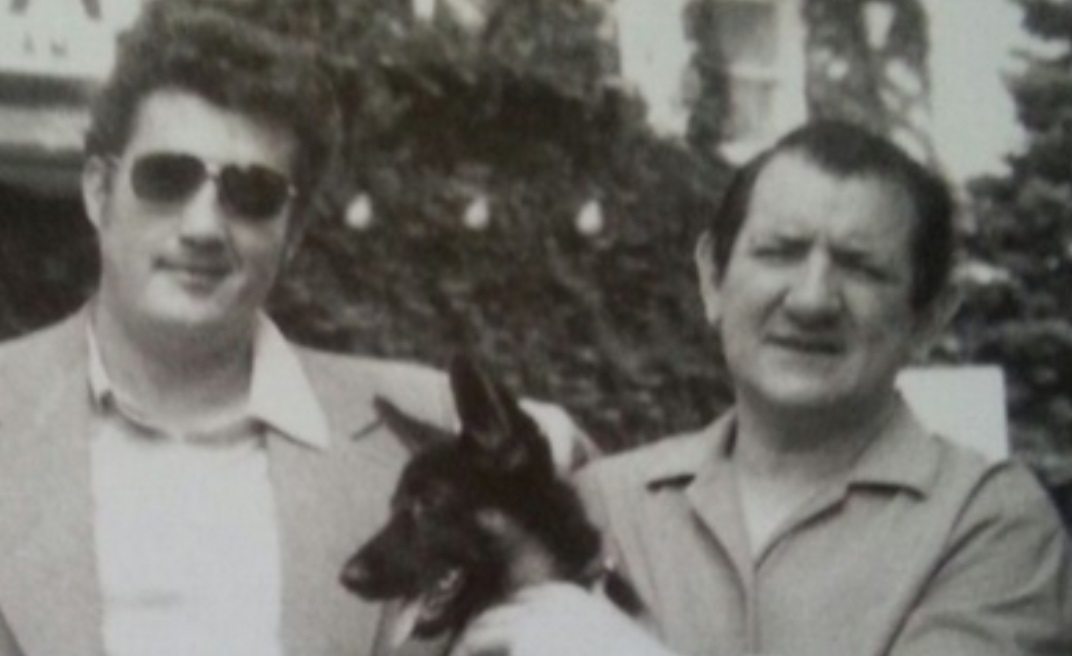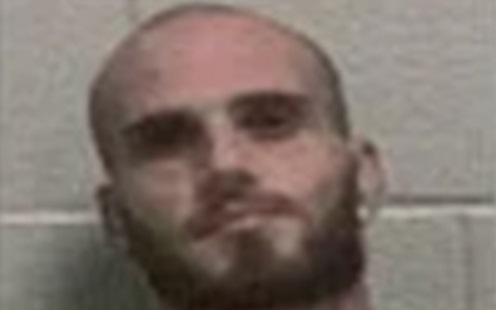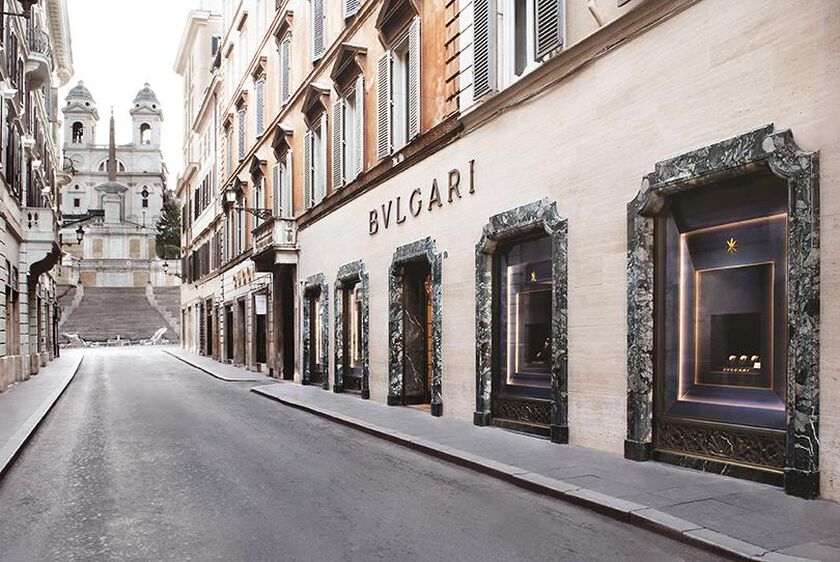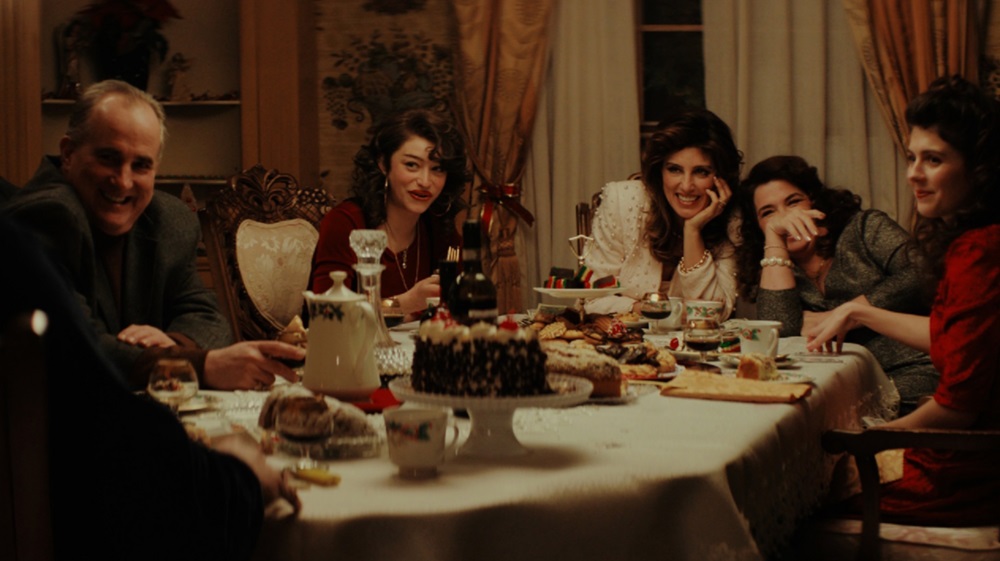By Thom L. Jones for Gangsters Inc.
He was a really old man when he died, a one-time mob boss of London’s Little Italy. Sometimes he was called “The General of Clerkenwell.” In a life that long, there must be a richness, a flavor of spice that carries his endeavors through decades of time unlawfully extant. A thousand memories of people and places, good and bad. Heavy on the bad.
Bert Rossi was part of the gangs of London which had existed for hundreds of years, long before the gangs of New York strode the streets of Manhattan Island. Clerkenwell, an ancient London parish, has been around since the 12th century, in the north-eastern corner of the central city.
Tucked into a corner of Clerkenwell is Saffron Hill, which grew to be known as Il Quartiere, the Italian Quarter. The estate of Saffron Hill was where people, hundreds of years ago. grew saffron, the most expensive spice in the world. By 1922, it had a reputation as squalid and the home of paupers, thieves and pickpockets.
The narrow, muddy, garbage littered streets were inspiration for Charles Dickens in his famous novel, Oliver Twist, using the Hill as the location of Fagin’s Den.
The area attracted Italian immigrants, and by 1854, there were over 2000 living in this part of London, although they had been settling here as early as the middle of the 18th century. Joseph Grimaldi, one of the most famous actors and comedians of Regency England, was born here in this area in 1778.

Roberto Umberto Rossi comes into the world on the first day of November, in 1922, in Saffron Hill. His parents, Rosa and Michele, had moved to London from Italy following the end of World War One. His father, allegedly an ice-cream vendor, was less than successful at plying his trade and Rossi grows up in a rented house shared by three families. It’s claimed the first thing he remembers thieving is a turkey for the family’s Xmas diner.
Bert and his family and all his neighbors were what was once described as ‘those vast, miserable, unmanageable masses of sunken people’.
As he moves through childhood, he joins the local street mobs and earned the nicknames “Battles”, which was the way the boys in the streets would hear his mother calling out “Berto” to drag him home at the end of the day. The young hooligans from Sicily bring their own version of street thuggery to the arena, calling themselves scassapagghiara, small-time thieves.
Rossi’s mother tries to find him employment in the majestic Savoy Hotel in London’s West-End when it was obvious that he was outgrowing school, but the son was channeling his energies in a different direction.
One involving the gangs of London.
As Bert was entering the world, gangs were fighting for control across the streets of London, and two of the biggest and most ferocious were Italians.
The Sabinis and Cortesi were highly visible mobs specializing in racecourse protection rackets, extortion, organized theft, as well as owning and controlling nightclubs and drinking dens across parts of the city. At their peak, the Sabini brothers, of at least four, led by Charles known as Darby, had as many as a hundred members in their gang and like all criminal groups, they not only fought the law but more often each other.

Recent research shows that there never was a Charles. This was, in fact, the eldest brother Octavio (left).
They were often at war with The Elephant Boys of South London, the Yidishers and White Family, the Hoxton Mob of Alfie Solomon, centered in Soho, central London, and even the notorious Birmingham Boys (of Peaky Blinders fame) who were based over a hundred miles to the north of London.
The year Bert is born, the Sabini and Cortesi gangs were involved in a gunfight at The Fratellanzana social club on Great Bath Street, wounding Harry Sabini. The authorities suspected the four Cortesi brothers -Paul, George, Augustus, and Harry -but never convicted them. Harry would eventually take over the clan, but before that happens, Bert is part of the gang, acting as a driver and bodyguard for Darby, who would become described as “a gangster and racketeer of the worst type,” in a government document reporting on his activities as a potential suspect aiding the enemy during the Second World War.
His right-hand man, Pasqualino Pappa, who became the dominant force in London’s Italian criminal society during the 1950s and 1960s, would eventually take his place as head of the Italian gangs.

As Bert moves from adolescence to adulthood, the gangs of London absorb his life. The ones like Billy Kimber’s Camden Hill, and the Upton Park Mob, the Battersea Boys, the Brixton Mob, Jack Spot and Albert Dimes, Billy Hill and inevitably, the inexorable Kray twins of the East End and the infamous Richardson’s who run their business and torture stables from factories and warehouses south of the Thames.
Leaving school at fourteen, he spends his years thieving and fighting. One of his opponents, Joey Fusco, was part of another Italian gang in the neighborhood. After soundly beating him, Rossi finds acceptance with the local organized crime groups and begins his long career as part of the gangs of London.
Over his endlessly long life, he will be imbedded into the culture of street criminals. The one gang he did not mix with was the Messina Brothers. Sleazy imports, they were born and raised in Egypt and Malta of Italian parents. Moving to London in the late 1930s, they built their empire on prostitution, fueled by an endless demand through the American Army based in England during the war years. People newspaper reporter Duncan Webb exposed the brothers, Eugenio, Attilio, Carmelo, Salvatore, and Alfredo, in 1951, eventually leading to their arrest or their forced departure from the country because of the immense negative publicity. Attilio’s statement, “We are more powerful than the British Government,” quoted by the press, turned out to be a big mistake. The government and the law descended on them like the proverbial ton of bricks.
Salvatore, the eldest brother, is endlessly mistaken as Salvatore Maranzano, the New York based Mafia mob boss murdered in 1931. The Messina brothers laid the foundation for all the Maltese pimps, gangsters and assorted criminals that would flood the streets of Soho in the years after 1945.

There were plenty of other groups fighting for control of London’s criminal underworld during this period. They included another English-Italian gangster called Alberto Dimeo. Ten years older than Rossi, he ran extortion and protection rackets along with bookmaking operations in Little Italy, and was one of Soho’s biggest loan sharks. Better known to the law and the media as Albert Dimes, he was continually at odds with another gangster, a man called Jack “Spot” Comer.
Born of Polish parents in London’s East End, he developed his criminal talents firstly in racehorse gambling control, then from running drinking clubs, and age-old extortion rackets across business targets, as well as police and political corruption on a scale not seen before in the capital city. At its peak, his gang may have had up to a thousand men on call.
In 1955, he found himself in a knife-fight with Albert Dimes. It was over who should control the major racecourses in the south of England. The stoush allegedly takes place in Frith Street, Soho, with both men stabbing each other with the same knife until a nearby shop-owner, one Sophia Hyams, ended the confrontation by whacking them both over the head with a large metal frying pan. When eventually brought to court, neither man was prepared to give evidence, and they adjourned the case.
In May 1956, a group of thugs this time including Rossi, attacked Comer, and he almost meets his end, while walking with his wife near their apartment in Cabell Street, near the Edgware Road. The ambush and razor-slashing of Comer was organized by Pappa and another London gangster called Billy Hill who was perhaps the only gangster to ever publicly announce in a court of law in July 1956, “I’m boss of the underworld.”
Born in Saint Pancras, inner London in 1911, he was allegedly one of the major drivers of organized crime in the metropolis though the second half of the 20th century, the man behind the biggest post office robbery in London in 1952 that netted the thieves the equivalent of almost nine million pounds.

Early in their careers, the Krays work for Hill as his heavies, at racetracks, ensuring the bookies were paying their dues for running their pitches under Hill’s control.

At his death, of natural causes in 1984, his death certificate ironically referred to his occupation as “demolition worker.”
Bert Rossi goes down for five years for his part in the attack on Comer and, while serving time at Winchester Prison, meets Ronnie Kray, who was doing his time for knifing one of his many enemies on the streets. He and his brother Reggie and others in his gang had confronted a group of rivals outside The Britannia pub in Stepney. The victim, Terrence Martin, was stabbed in the chest and head by Ronnie. Reggie walked, but the evidence put his brother away for the stretch.
Although Bert thought of Kray as “mad as a hatter,” they became friends, with Rossi, the older, more experienced gangster taking on the role of mentor. “Battles” would become close to both brothers and was often seen in photographs with them at social functions and sporting fixtures.
In the 1960s, Rossi makes contact with the underworld of America. His British passport logs him into America in February 1966 and March 1971 under the alias Roberto Fauzzi, but these were not his first visits.
His name is linked to John C. Berkery, allegedly a member and crew leader of the Philadelphia K & A gang, a group of Iris-American gangsters, operating in the Kensington area of north-east Philadelphia and through him, he meets Angelo Bruno, boss of the city’s Mafia family. And maybe through him, Carlo Gambino and Meyer Lansky.
Berkery was close to a captain in Bruno’s mob called John Martorano and they were both apparently heavily into drug trafficking, as well as the usual mob staples of extortion, gambling and hijacking.
Bert’s links to the American mob perhaps lead him to be their connection to the establishment of The Colony Sporting Club, in Berkley Square, London. It’s alleged, Bruno and Meyer Lansky, along with Dino Cellini, were the financiers and ageing, ailing George Raft, one-time movie star, is on hand to act as host and greeter, coxing in the suckers to spend big on food, drink and above all, gambling.

It lasted all of two years, from 1966, then the British Government stepped in. They banned George Raft as an undesirable, and the club simply became a memory like the immortal nightingale that sang in Berkley Square.
On 8 September 1975, someone shot and killed Beatrice “Biddy” Gold in the basement of her clothing business at 364 Goswell Road in Clerkenwell. Subsequently, authorities arrested, tried, and convicted Errol Heibner, a thirty-year-old South African, for the killing. The incident occurred at around 5.15pm that evening, with the victim being shot three times by a .32 revolver.
A flooring contractor, identified as Roberto Rosa-Fauzza, aka Albert Rossi, is suspect in supplying the weapon and setting up the murder. It was alleged, the murder was a contract-hit, paying Rossi and Heibner £20,000. This mystery involves Vincent De Marco and Michael Miller, both of Florida. De Marco and his wife had visited London, meeting up with Rossi, before departing back to America, two days before the killing of Gold. De Marco had been one of the investors linked into the short-lived Colony Club.
Although both defendants made verbal and written statements as to their guilt, Rossi’s good brief led to his acquittal.

Heibner served a minimum sentence of 25 years and was released in 2010. His case has become something of a cause célèbre, with him claiming they set him up and he was innocent of the killing.
It was claimed his was the longest miscarriage of justice case in British legal history. However, in 2014, authorities tried and convicted him on drug trafficking charges, sentencing him to a lengthy prison term. Maybe if you’re a criminal, it’s just really hard to stay straight.
The murder of Beatrice Gold is not the only one that perhaps connects to Bert Rossi. He was questioned by the police in their investigation into the apparent suicide of ex-boxer and celebrity, Freddie Mills, who was found dead in his car behind his club-Freddie Mills Nitespot-in Charing Cross Road, in Soho, on the night of July 25, 1965. Rossi had been involved in negotiating Mills’s exit from the club, on behalf of Ronnie Kay, who as acting for the other club partner, Andy Ho. It was a complex, confusing situation, that dragged in all kinds of peripheral criminal activities, including the infamous ‘Jack the Stripper” serial killer who had terrorized parts of West London between 1959 and 1964.
Following his acquittal on the murder charge, Rossi withdraws from active gangland life and settles into forty years of retirement. He becomes friends and associates with a newly emerging gang in Clerkenwell.
Formed in the early 1980s, the Adams Family, sometimes referred to as the A-Team, is a crime syndicate formed by Terry, Patrick and Tommy Adams. Born of Irish parents in Islington, London, they have grown to be major racketeers dealing in extortion, drugs, bookmaking, money laundering, people trafficking, smuggling, just about everything. It’s claimed they have amassed earnings north of £200 million. All the brothers have served lengthy prison sentences over the last forty years.

Bert Rossi died, aged 94, at his home in Colebrook Row, in the borough of Angel. He was less than two miles from where he had been born, all those years ago. It is July 2, 2017. His long journey through a world most of us will never comprehend comes to an end, peacefully.
Apart from a narcissist, nobody really craves attention for its own sake. Building a bridge to fame and notoriety was so far from Bert Rossi’s agenda, it didn’t even earn a spark on a dark night. He was the ultimate low-key gangster who did what he did without fear or favor, but always on the downside of a shadow.
At his funeral service in St Peter’s Italian Church, in Little Italy, he was serenaded by music from the movie, The Godfather. Was this in tribute to his links to American mobsters, or simply good old-fashioned bad taste, something the London gangs no doubt understood better than most.
Nietzsche may have got it right when he claimed, “Truths are illusions which we have forgotten are illusions.”
Like fire-flies, flitting across a landscape of criminal intent, the thieves and thugs search endlessly for their source of energy in Britain’s biggest metropolis. As long as the city endures, there will surely be the Gangs of London.
- Back to the Organized Crime in Europe section or Thom L. Jones’ Mob Corner on Gangsters Inc.
- Check out the latest news on organized crime and the Mafia at our news section
- About Gangsters Inc.
Copyright © Gangsters Inc.






Leave a Reply